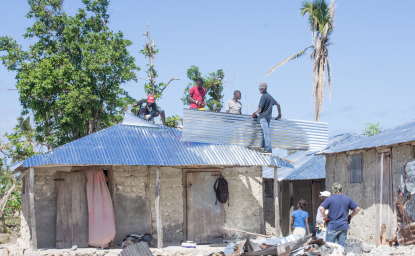State Department Submits International Water Strategy to Congress
JUNE 2006--Report Accomplishes First Step Required by the Water for the Poor Act
JUNE 2006--Report Accomplishes First Step Required by the Water for the Poor Act
The U.S. Department of State submitted to Congress on June 1, 2006, an initial report on ways the United States can improve access to clean water and sanitation in developing countries--which the Senator Paul Simon Water for the Poor Act of 2005 made a specific policy objective of U.S. foreign assistance programs by.
According to the State Department, this report "marks the beginning of a long-term process to develop and implement a strategy to strengthen U.S. efforts on international water issues."
In developing the report, the State Department worked closely with the U.S. Agency for International Development and other U.S. technical agencies, and consulted widely with other governments, civil society (including non-governmental organizations, foundations, and faith-based groups), and the private sector.
More than 150 people attended an April 19, 2006, town hall meeting at the U.S. Department of State, to share their views on priorities and activities in the international water sector; novel approaches to addressing water and sanitation issues in developing countries; impediments to accomplishing priority goals; and areas where the U.S. government could improve the environment for implementation.
At the meeting, ECSP Director Geoff Dabelko offered three suggestions for implementation:

The Environmental Change and Security Program (ECSP) explores the connections between environmental change, health, and population dynamics and their links to conflict, human insecurity, and foreign policy. Read more



